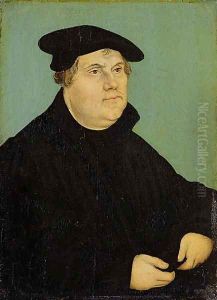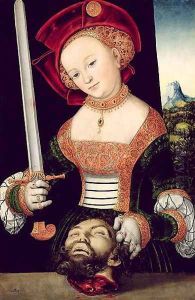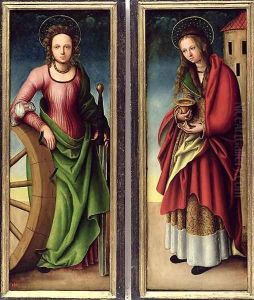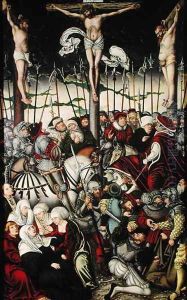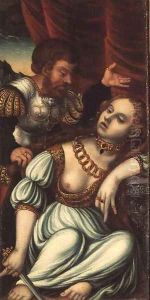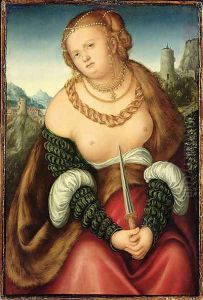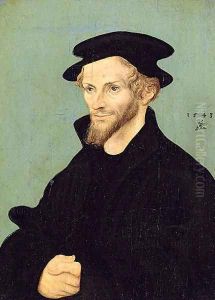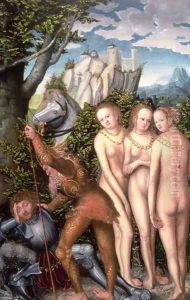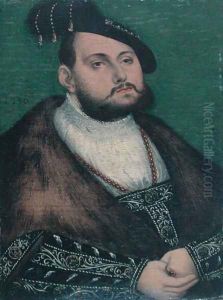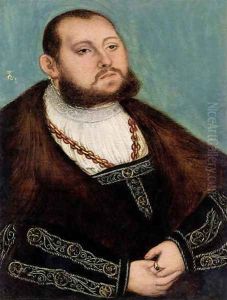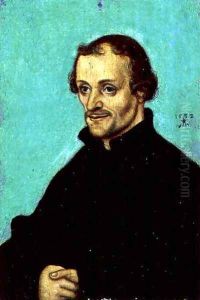Lucas (studio of) Cranach Paintings
Lucas Cranach the Elder was a German Renaissance painter and printmaker known for his portraits and mythological, allegorical, and religious subjects. He was born in 1472 in Kronach, Bavaria, and is sometimes referred to as 'Lucas the Elder' to distinguish him from his son, Lucas Cranach the Younger, who was also a talented artist. Cranach became court painter to the Electors of Saxony in Wittenberg, a position that provided him with both security and the opportunity to work on a variety of commissions.
Cranach's style is characterized by a combination of detailed realism and expressive strength, often employing a distinctive slender and elongated portrayal of figures. His works include altarpieces, portraits, and engravings that reflect the ideas of the Reformation, which he supported. A close friend of Martin Luther, Cranach played a significant role in spreading Protestant ideas through his art, which included portraits of reformers and illustrations for Lutheran publications.
Cranach ran a large workshop that produced numerous pieces under his supervision and name, which was a common practice at the time. As a result, many artworks are attributed to 'The Studio of Lucas Cranach' when the exact level of his personal involvement is unclear. These works still bear the distinctive features of his style and were created by his apprentices and followers, who were influenced by his techniques and themes.
Beyond his artistic contributions, Cranach was also an entrepreneur and politician. He owned a printing press, a pharmacy, and was the mayor of Wittenberg for a period. His activities extended to various fields, reflecting the multifaceted nature of many Renaissance individuals.
Lucas Cranach the Elder passed away on October 16, 1553, in Weimar. His legacy is preserved through a vast body of work that continues to be celebrated for its artistry and historical significance. His influence extended beyond his lifetime and played a crucial role in shaping the visual culture of the Reformation.
